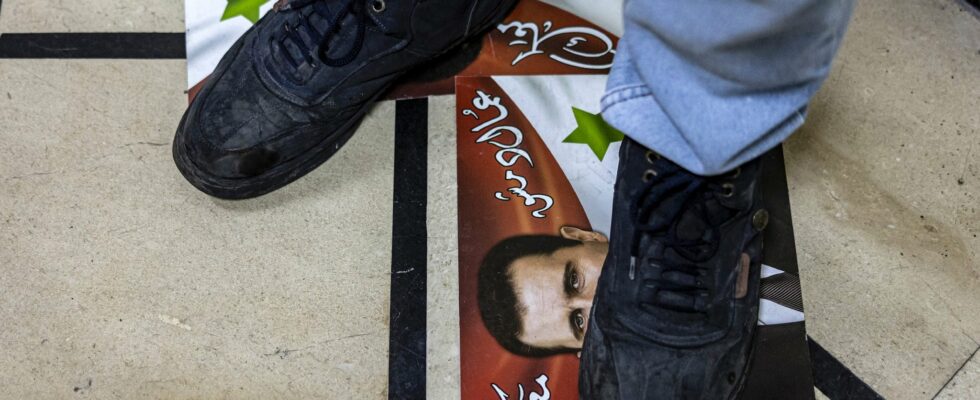On the walls of some Sunni neighborhoods in Syria and Lebanon, one can often read: “It is forbidden to insult or mock God or his messenger.” A sentence that almost automatically arouses a contrary desire: to mock this God, his prophet and those who wrote these words. Who is this God who needs defenders? It was precisely this logic that motivated the assassins who entered the premises of the Charlie Hebdodetermined to take revenge in the name of Allah. This idea, at the origin of so many tragedies, continues. In Syria, at the time of the fall of the Assad regime, French jihadists fighting alongside the Islamist group Hayat Tahrir al-Sham (HTC) were jubilant at the idea of ”liberating” Syria from the dictator. However, their real enemy has never been Bashar al-Assad, but freedom of thought, creation, and the right to criticize religion, in order to protect their Islam and rebuild an international caliphate. Should we fear their return to France and the possibility that they will commit another attack?
On this tenth anniversary of the massacre of Charlie Hebdoalso marked by the fall of Assad, I am thinking of Ali Ferzat, a talented Syrian cartoonist, famous for having drawn the Syrian autocrat in ridiculous positions. At the start of the 2011 revolution, he was kidnapped in the heart of Damascus. Secret service men brutally beat him, particularly targeting his fingers, his main tool of expression. The objective was clear: to silence the artist and break the symbol of the paintbrush which resisted repression.
Nothing bothers a dictator more than caricature. It destroys the image that he embodies in the minds of the population, that of a superior being. We Syrians had been fed the idea that Assad was the most intelligent, the most beautiful, the strongest on the planet. With his photos, his sentences, and this voice that we knew by heart, he had, unconsciously, become sacred. This is also the case with Mohammed. You just have to read the hadiths to discover the portrait of a miraculous man: he was described as the most virile, capable of sleeping with his nine wives for one night and one day. He could take on any other man on earth. A real-life Spiderman who could be a very inspiring subject for comedians.
Could I have been among the assassins?
It is thanks to mockery that the aura of Assad, on which a dictator builds his power, has fallen into the minds of Syrians. This is also how Charlie Hebdo brought down the image of Muhammad as a taboo subject. On the evening of the massacre, during the rally at Place de la République in Paris, the slogans chanted resembled those we shouted in Syria against Assad. Following each arrest of an activist by the regime’s militias, we changed our profile photos on social networks, writing “I am” followed by the name of the person arrested. And on this sad January 7, 2015, we became Charlie. The newspaper was a reflection of the resistance for freedom in all its senses: against the dictatorship of a man as well as that of a god. The two look alike.
At the time of the attack on the satirical newspaper, I asked myself a question: if I myself had not come out of this ideology of avenging in the name of God, could I have been among the assassins? I grew up in a culture that considered defending Islam a sacred accomplishment. In 2001, having followed my parents to Saudi Arabia, I studied in a Koranic school. At the time of the September 11 attack, I became enthusiastic about Osama bin Laden. He was considered a hero who defended Mohammed, the fighter who preserved the dignity of Islam against the West. Like thousands of other young people, I was manipulated by this ideology. If the attack against Charlie Hebdo had taken place at that time, I would undoubtedly have rejoiced, believing that the newspaper was paying the right price for its provocative editorial line.
Today, ten years after the attack, Mohammed is no longer, for many young people in the Middle East, an untouchable figure. But the fall of Assad in Syria offers a new opportunity for religious extremists. According to the Syrian Democratic Forces (SDF), massive movements of organizations linked to ISIS have been recorded, especially in northeast Syria. Daesh is taking advantage of the current chaos, it is now out of control. Its members will not only stay in Syria, they will seek to implement international jihad. But at the same time, Assad’s departure also awakened secular and artistic movements in the region. We can see it through the drawings on the walls, the new songs repeated during gatherings. Between the two camps, fundamentalism and liberation of the spirit, the fight continues.
* Writer and poet born in Damascus, Omar Youssef Souleimane participated in demonstrations against the regime of Bashar al-Assad, but, hunted by the secret services, had to flee Syria in 2012. Refugee in France, he published with Flammarion The Little Terrorist, The Last Syrian, A room in exile And Being French.
.
